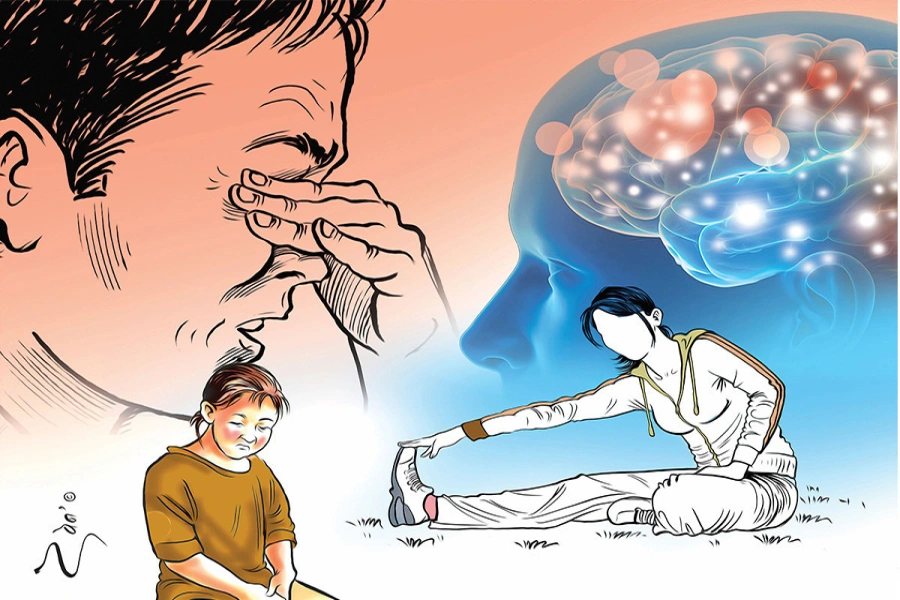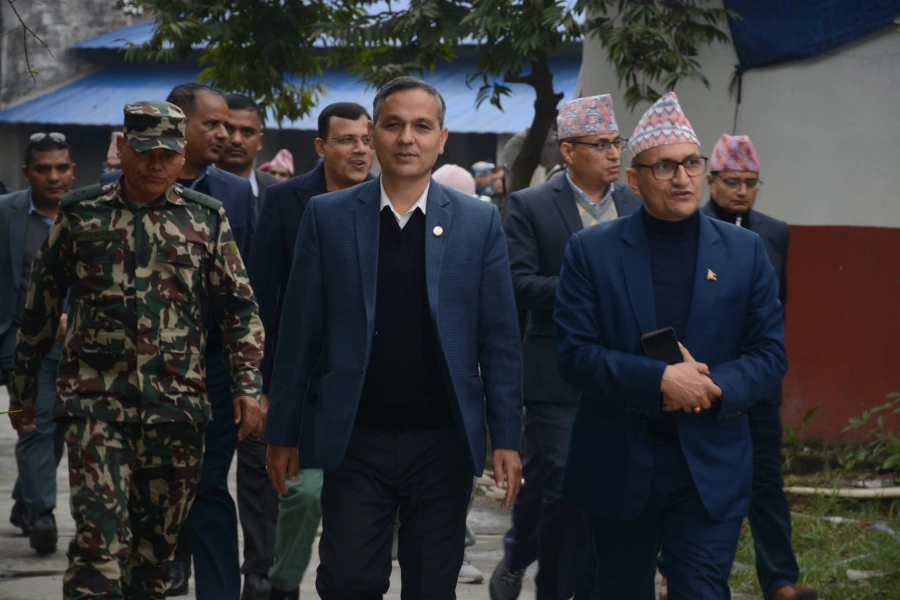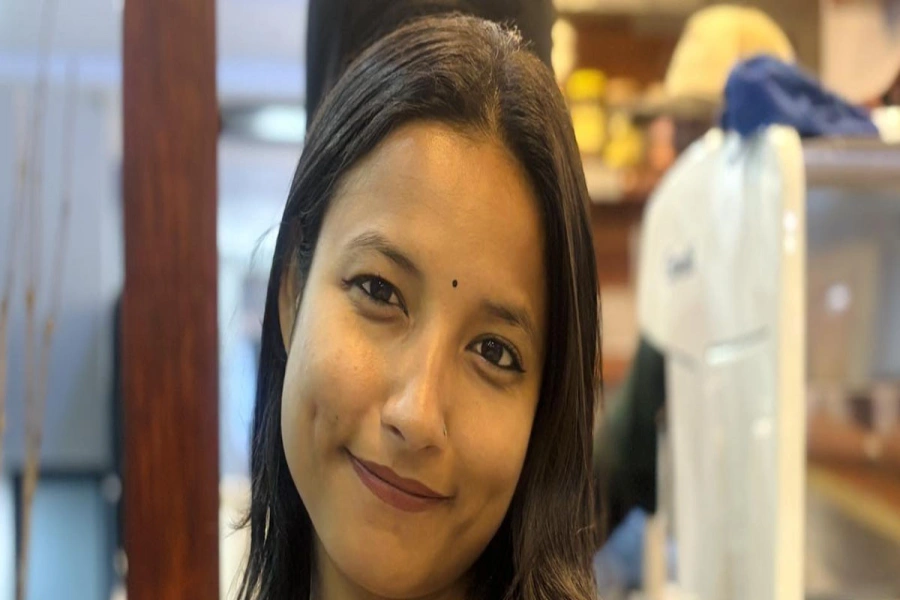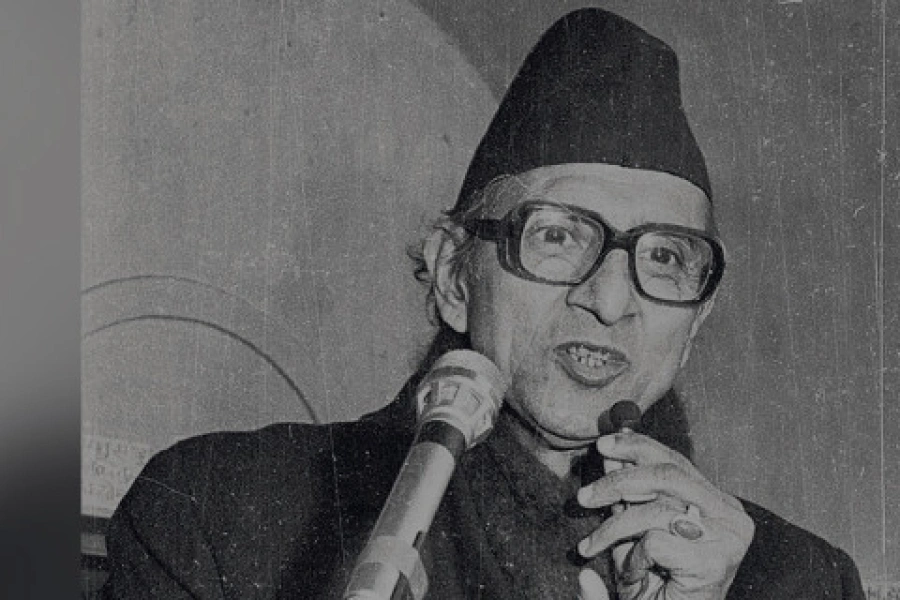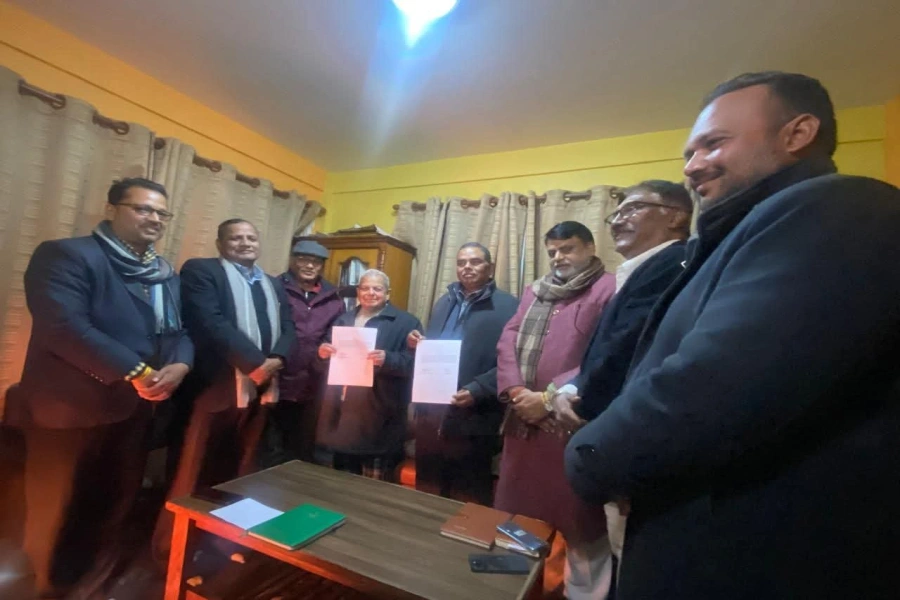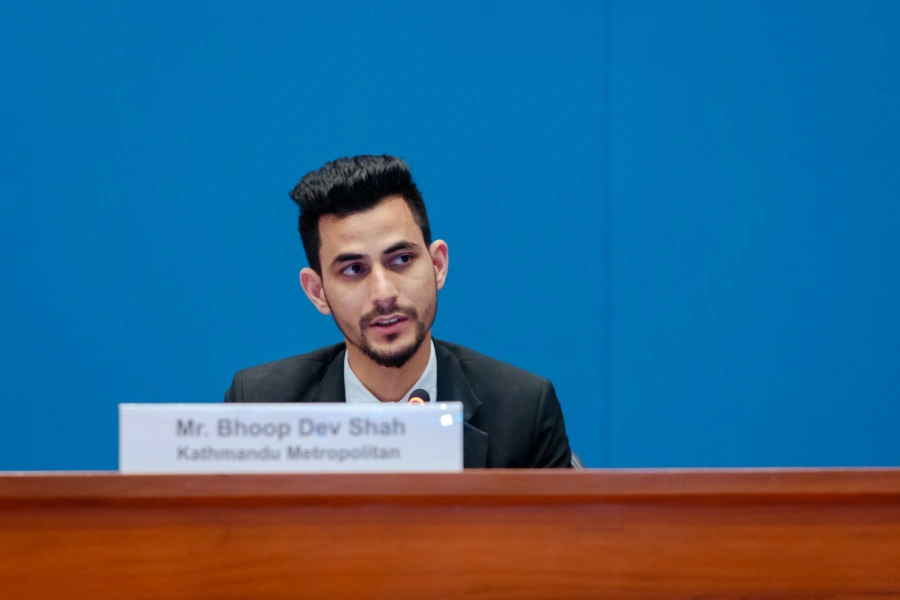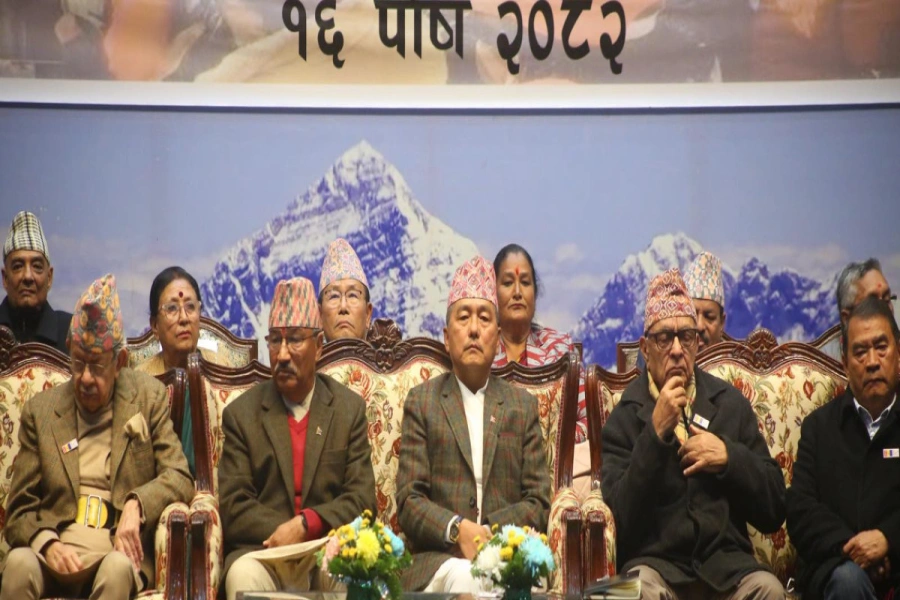Nepal needs to be afraid, very-very afraid, of the dominant group with persecution complex, the Olians, striking back
Outsiders are not permitted to vote for the presidency of the USA, but outcome of its elections can affect the lives of everyone on the planet in a good, bad or ugly manner. And that’s not just because the occupant of the White House has his—alas, the opportunity of using the alternative pronoun has been lost again—fidgety fingers upon nuclear buttons.
At least since the World War II, the USA set the standards of politics, economy, society and culture that the so-called “Free World” was asked to emulate. When history supposedly ended with the fall of the Soviet Empire, the only comprehensive political creed left standing in the marketplace of ideas was the free-market fundamentalism and periodic elections. All winners had to swear by the agenda of the Washington Consensus.
Political economy apart, even lifestyles almost everywhere had Bruce Springsteen lament “Born in the USA” stamped upon colas, burgers, jeans, hoodies, sport-shoes and backpacks without a thought for the pathos of the Military Industrial Complex, rampant racism and widespread misogyny behind some of the most famous global brands . Films were all Hollywood, Bollywood, Kollywood (Kathmandu and Kodambakkam in Chennai), Tollywood (Taipei, Tollygunj in Kolkata, and Telangana) or Nollywood (Nigeria) serving similar fares of fantasy.
Everyone wanted to own an iPhone, even if it sometimes entailed hawking one’s kidney in what was once the Celestial Empire. All desirable values and everything that had a value originated in the “A city upon a hill”. Donald John Trump—a billionaire businessman, reality television personality and real estate magnate—is the President-elect of the Empire pretending to be a nation-state of white supremacists.
At least since the early-1990s, the striving to become copycat democrats has become a habit and leaders of the world increasingly look towards Washington for cues to run their own fiefdoms. Popularity of presidential form of government is largely due to its success in the USA. Even prime ministers under parliamentary system aspire to acquire power and influence of an elected monarch with unbridled executive authority to overrule the legislature and bypass the judiciary.
The media in and outside of USA has gone to town pointing out risks that Trump, Trumpism and Trumpeters pose for the post-WWII world order. Fears are perhaps genuine, for there is no telling where the fireball of the mighty loose cannon may befall.
INTERPOL issues diffusion notice against GB Rai and two officia...

Cardboard crowns
Rodrigo Duterte of Philippines fancies himself as a lawless law-enforcer. That’s a dangerous delusion, but it’s quite unlikely that the celluloid-like character can run more than 7,000 islands the way he wants. When a dictator like Marcos has to be buried like a thief, even though at the Heroes’ Cemetery, it would be a travesty to underestimate the People Power in the land where the expression was first born in the early-1980s.
All that Recep Tayyip Erdogan of Turkey seems to want is to become another Sultan. His presumptuous sultanism may cost the Turkish society dear, but its impact in rest of the world is unlikely to be too big. The mutual regard of one strongman for another apart, the possibility of Trump endorsing an Islamist isn’t very high.
Vladimir Putin is a pretentious saviour on horseback, who needs to keep proving that he is indeed a potent ruler. He was once seen riding a horse shirtless. Recently he was photographed fishing bare-chested. But despite his shenanigans in Chechnya, Crimea and Syria, Putin’s body-baring excesses are no match for the havoc that a compulsive gambler in a red tie can create.
China is potentially a new pole that may challenge the hegemony of the USA and end post-Soviet geopolitics. Already the General Secretary and Supremo of the ruling Communist Party, the Chairman of the all-powerful Central Military Commission and the Executive President of the Government, Xi Jinping was also conferred with the status of the Core Leader, which puts him at par with Mao Tse-tung and vests authorities of ideological helmsman in his personality.
That sounds pretty impressive. In practical terms, however, the role of President Jinping is increasingly that of a Chieftain of the Chinese Oligarchy of communist custodians, military warlords and captains of commercial enterprises. There are no institutional checks and balances in China, but those aware with intricacies of the biggest practitioner of state capitalism in human history insist that silent plutocrats exercise enormous influence in Beijing.
The Brexit cheerleader-in-chief Nigel Farage and rabid-rightwing agitator Marine Le Pen are potential time-bombs ticking away in Europe. Influence of these incendiary characters beyond their own borders, however, is next to nil. With a queen-in-parliament political system and peerage breathing down the necks of populists all the time, it will require a figure greater than Winston Churchill and Margaret Thatcher to stage a counter-revolution in England. The French are more susceptible to xenophobic exhortations. But they are equally prone to cycles of agitation and restoration.
Narendra Modi will have to put up the unity and integrity of India at stake if he were to begin harboring dictatorial ambitions in a maddeningly multicultural country where even being Hindu is more of symbolic badge than a shared identity. In any case, Premier Modi will probably hold a pair of scales and do a careful cost-benefit analysis before waving his sword at ‘internal enemies’.
The common denominator—a feature shared by each member of the rogues’ list—is their fixation with the present. None of them explicitly talks about some real or imagined past.
They don’t even hawk hopes of utopian futures. They rule by fear: Dread of demographic aggression, fright of dilution of racial purity, and terror of economic hardships.
Most authoritarian rulers command the loyalty of the middleclass even as they serve the interests of the elite. But their strength lies in unhesitating use of instruments of coercion to ensure compliance. Such an approach can’t be stretched beyond a limit without risking implosion. Sometimes dictators last for generations—as it has happened in North Korea—but they never become a model to be emulated elsewhere.
The problem with alt-right, defined as “an ideological grouping associated with extreme conservative or reactionary viewpoints, characterized by a rejection of mainstream politics and by the use of online media to disseminate deliberately controversial content,” lies in its appeal to a large section of techno-savvy and smart-alecky young adults that always know the answer before a question has even been posed. Think of Oliological professionals in Nepal, the Bhakta entrepreneurs in India or the cyber-warriors of Pakistan to be able to appreciate the risk of the rise of Trumpian phenomenon in South Asia. Sri Lanka and the Maldives have already traversed through that blind alley.
Hater’s hat
The fuss over post-truth, defined recently by Oxford Dictionaries as “relating to or denoting circumstances in which objective facts are less influential in shaping public opinion than appeals to emotion and personal belief”, is merely the recognition of existing realities.
There never was a pre-truth condition or in-truth circumstances in the business of hawking beliefs and shaping opinions. Krishna in Mahabharata and Rama in Ramayana have shown that politics is the art of possible impossibilities. No force other than passion can drive such an enterprise to its logical conclusion. The only thing that has changed is technology, which has turned post-, as OD correctly points out, into a prefix that means “belonging to a time in which the specified concept has become unimportant or irrelevant”. Think post-democracy now, which is what Trumpism is all about.
Welcome to the brave new world of multiple virtual realities in lieu of truth as Marshall McLuhan’s famous aphorism “the medium is the message” acquires added salience.
Without a troll army of propagandists in Cyberia—a place nowhere and yet everywhere—Trumpism would have fallen flat.
Populism plays upon dormant rage of plebeians against patricians—the plutocrats, the oligarchs, the noblemen, the aristocracy, the moneybags, the military men, the mandarins, the monks and all such groups easily identifiable as the ruling elite.
Demagoguery entails manipulation of fears of the bourgeoisie to fuel hatred in their hearts for the unwashed masses, the politically correct intelligentsia, the outsiders amidst the in-group and the barbarians at the gates waiting to take over the nation of the pure.
Trumpism is a combination of the two that weaves past and future with fears and hopes.
Nepal too needs to be afraid, very-very afraid, of the dominant group with persecution complex—the Olians—striking back again. Eternal vigilance and unceasing activism is the only possible antidote to demagoguery.





